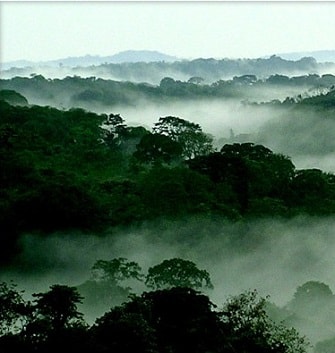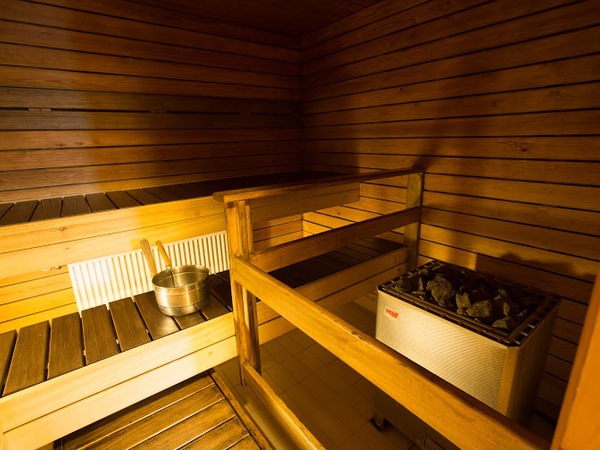Mattan
Active member
- Joined
- March 17, 2013
- Posts
- 622

MATIMATI
Official name: MatiMati
Emperor: Jan XII
Population: 4.2 million at the latest census
Capital: Paipis (1.1 million inhabitants)
Other large cities: Box (0.5 million), Gullsand (0.4 million)
Official language: Swedish
National anthem: Nordens folk, söderns land
Currency: Fyrk (1 fyrk = 100 penningar)
National broadcaster: MatiMati Radio och Television (MMRT)
Music: good
Beer: yes please
Flag
The flag of MatiMati consists of two yellow stripes, five white stars and one yellow star on a red background. The red and yellow colours represent the colour of the northern lands from which the inhabitants arrived as well as the Emperor of MatiMati. The yellow stripes symbolise the sea, which is important to the country. The five white stars represent the five major regions of the country as well as the five original tribes, and the lone yellow star symbolises the Emperor uniting MatiMati.
Overview and history
MatiMati is a country is a country that is often overlooked because of its slightly secluded location and the fact that it has never been very active militarily, but this has made an undisturbed development possible.
The unusual name of the country stems from a disagreement about the name when the previously unnamed collection of five tribes was united under the iconic emperor Mati I. The emperor intended to name the newly-formed governmental entity after himself and had the support of the largest tribe, but the other tribes, forming a majority, objected to this. Unwilling to give up his demands, but aware of the danger of being overthrown, Mati I suggested the name would be doubled. The proposal was accepted by the leaders of all tribes, and the name persists today.
The inhabitants of MatiMati, generally called the Mati, originate from the north, which is where the original tribes were united. During a thirty-year cold period, more than half of the people died due to insufficient food availability, prompting an emergency solution of finding a temporary place to move. Emperor Henrik IV sent an expedition to the south, and two years later, the expedition returned - they had found a tropical peninsula with fertile soil, few dangerous animals and no signs of prior conquest. Henrik IV decreed that the entire population was to relocate, and apart from roughly two hundred people, this happened in just three years. The people left behind are assumed to have perished in a storm some years later.

Image 1: The northern lands from which the five tribes of MatiMati originate.
While the MatiMati peninsula has fertile soil, the country had to be rebuilt from scratch. In just ten years, however, the development of the peninsula had reached a point where Henrik IV decided that the country would be permanently relocated, a decision which gathered large popular support. There was, however, a shortage of tools and goods, as metals were not widely available. This prompted the country to become a hub for trade, and in an early marketing campaign, it described itself as the “open for business”, initially attracting French-speaking traders, who had a keen interest in spices, which were the only thing MatiMati had to offer. MatiMati built a reputation of a trading hub, which it retains to this day with the Paipis Stock Exchange and offices of many large companies in the country.

Image 2: The CBD of Paipis.
Present-day MatiMati is a fairly small, but vibrant tropical nation, that firmly retains its northern heritage while embracing its cosmopolitan nature. Education is considered the pillar of Mati society, while the local culture is heavily connected to the water due to seafaring traditions.
Geography
MatiMati is located on a peninsula mostly in the tropical zone with some subtropical areas to the north. The country is mostly flat, but the Vargbergen Mountains rise sharply near the border with a maximum height of 4,403 metres at Ulvfjäll. The major population clusters are found on the northern side of the peninsula, containing the capital Paipis near the tip. This is also the largest agricultural area in MatiMati. The central part of the peninsula consists of the Storskogen rainforest, which is home to significant biodiversity. The southern coast is sparsely populated and has few natural harbours compared to the north, though its long, sandy beaches have contributed to the rise of tourism in MatiMati.

Image 3: Parts of the Storskogen rainforest.
Economy
Today, MatiMati is a relatively wealthy country – though not the biggest actor in the global market, the standard of living has grown rapidly during the past century and is now on par with some richer nations in certain parts of the country. There are regional divisions, with the north being wealthier than the isolated south, but the southern parts of the country are fairly self-sufficient. The area where MatiMati was previously located has significant reserves of coal and platinum, but the lack of natural resources in present-day MatiMati means the economy is highly service-based. The financial sector is strong, but the focus on education has made MatiMati a hub for research. The country attracts some tourists, especially for the beaches in the south around Gullsand as well as the cities of Paipis and Box, but while the industry has seen recent growth, it still constitutes a minor portion of the economy.

Image 4: Gullsand beach on a busy day.
Climate
Most of MatiMati has a tropical rainforest climate (Köppen: Af), with warm temperatures and abundant rainfall year-round. The mountainous regions see significantly cooler temperatures.
Languages
The sole official language of MatiMati is Swedish, which is also the first language of the majority of the population. Due to the cosmopolitan history of the country, however, other languages have been present for a long time, and the most common native languages other than Swedish are English, French and Spanish. English is widely spoken as a second language and most Mati understand French.
Culture
The culture of MatiMati is a blend of ancient northern traditions, new traditions shaped by the country’s new location, and cosmopolitan influence. Saunas are popular in MatiMati with one for every two inhabitants, and traditional Mati foods include pea soup, lutefisk and pickled herring. One can also see northern traditions in the folk music and place names, which often refer to things not present in a tropical climate. The country’s tropical location has created new traditions, such as the leaf dresses used for ballroom dances and winter sports being replaced with more climate-appropriate events. Modern Mati music spans all genres and often bears little trace of traditional northern folk music, with several Mati indie rock bands and electronic music artists becoming very popular both in and outside the country.

Image 5: Saunas are central to Mati culture.
Sports
The most popular sports in MatiMati are football, sailing, riding, and motor racing. The country has a long tradition of seafaring, but football quickly fell in favour on its arrival. The successes of the national football team have been rather modest, but Elitligan (the highest tier of club football) sees large attendances. The most successful team is Paipisälgarna, known internationally as FC Paipis Elks, with eight titles. Riding has been popularised as a sport later, mainly due to international successes of early pioneers, while motor racing has retained a smaller, but eager following since the arrival of cars in MatiMati. The country has hosted some minor international events in these sports. While the climate makes winter sports impossible, MatiMati boasts three plastic ski jumping hills and sends competitors to ski jumping competitions.

Image 6: A ski jumper trying his skills in 30°C temperatures.
Media
The media in MatiMati is both state-controlled and private. The state broadcaster, MatiMati Radio och Television (MMRT), offers fourteen national radio stations and eight national TV channels as well as some local ones. Programming is generally in Swedish, but MatiMati International TV broadcasts content in multiple languages, mainly in English though regular programmes in French, Spanish and recently Mandarin also exist. The most popular private TV channels include MatiXtra, TV9, and Sjukt Lokal Lokal-TV.
Politics
MatiMati has a multi-party system with the legislative power belonging to the Parliament of MatiMati. Democratic elections are held every four years. The head of state is known as the Emperor of MatiMati, but this is merely a remnant from the times when the position was hereditary and the position is largely one of a figurehead. The retention of the title frequently confuses outside observers as one imperial term lasts four years, but the position is widely popular among the Mati. The current emperor is Jan XII.

Image 7: Parliament of MatiMati
MatiMati - slipp slasket!
Last edited:






